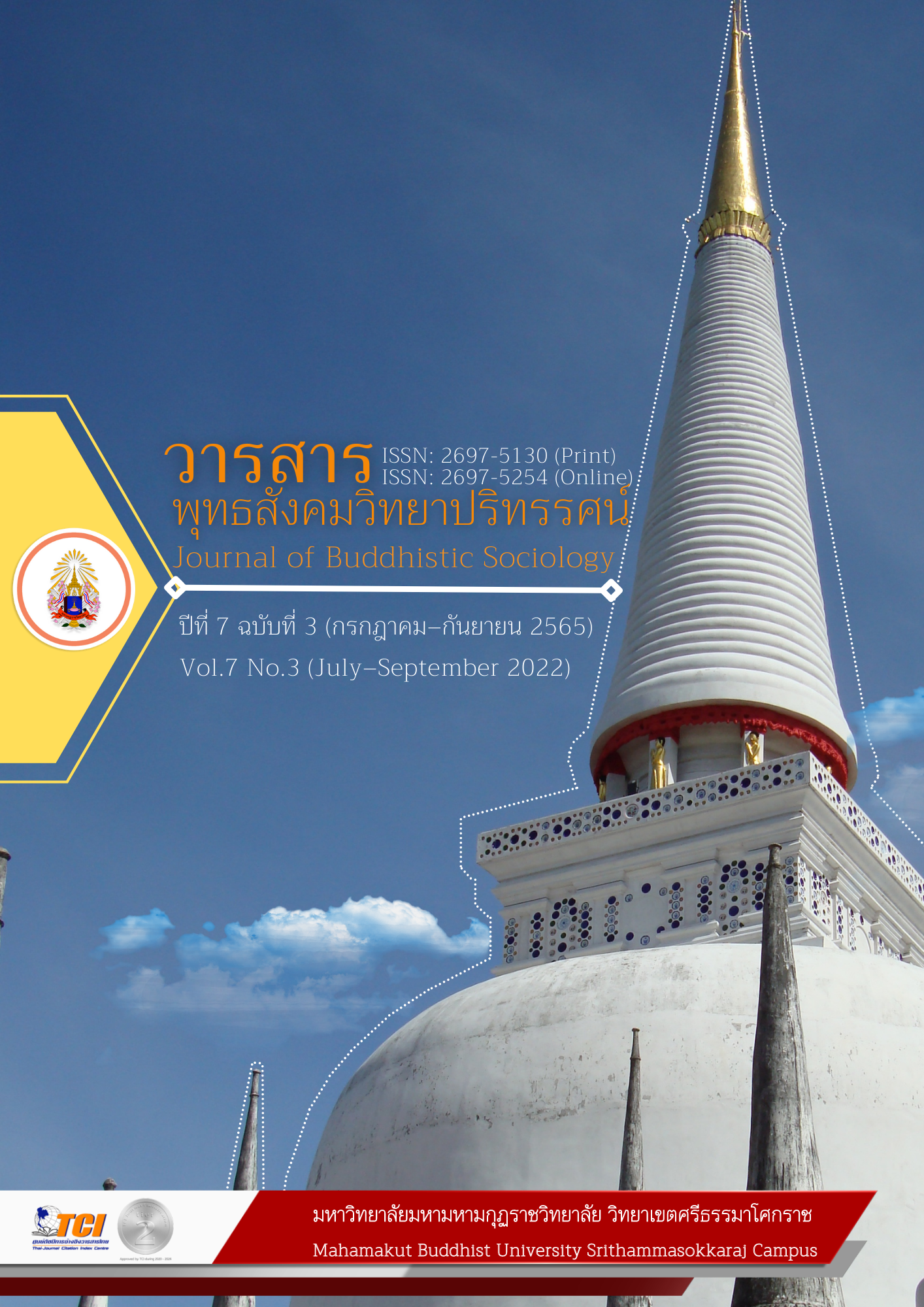TEACHERS’ ROLES IN THE 21ST CENTURY AS THE PARENTS OF A DISCIPLES
Main Article Content
Abstract
In the 21st century, the advancement of science and information technology is causing high economic and social competition. Therefore, it is necessary to accelerate the development and promotion of the people’s capacity in their countries to be quality human resources. An essential tool for improving the quality of the population is education. The mechanism for improving the quality of learners is the teachers, which are the leading force in developing quality learners and helping them keep up with the ever-changing world. Teachers in the 21st century have changed from being knowledge tellers, educators, learning managers, and learning designers to teachers that aim to teach learners to think and be able to deal with changes wisely as happening in the future. A teacher who is filled with the spirit of a teacher will determine to develop his students to be good citizens of the nation. Teachers, as the parents of the disciples, will perform the same duties as parents, educate, teach, prevent, and forbid students to stay away from evil things. Therefore, various comparisons are created for teachers, such as being a spiritual leader, a beacon to light the way, a mold, a matriarch, or even a hired boat. Teachers lead the students to success like the great teacher of the world, the Lord Buddha, who taught both gods and humans to escape from evils or point out the path of happiness, Nirvana. Thus, teachers are essential to students.
Article Details

This work is licensed under a Creative Commons Attribution-NonCommercial-NoDerivatives 4.0 International License.
References
กัลยาณี พรมทอง. (2563). บทบาทหน้าที่และความรับผิดชอบของครู. เรียกใช้เมื่อ 6 กุมภาพันธ์ 2565 จาก https://bit.ly/3R82Rol
โกมาตร จึงเสถียรทรัพย์. (2549). พหุลักษณ์ทางการแพทย์กับสุขภาพในมิติสังคมวัฒนธรรม. กรุงเทพมหานคร: ศูนย์มานุษยวิทยาสิรินธร.
ประเวศ วะสี. (2545). การพัฒนามนุษย์แนวใหม่เพื่ออนาคตที่ยั่งยืน (พิมพ์ครั้งที่ 1). กรุงเทพมหานคร: หมอชาวบ้าน.
เปลื้อง ณ นคร. (2564). พจนานุกรมแปล ไทย-ไทย. เรียกใช้เมื่อ 1 กรกฎาคม 2565 จาก https://dictionary.sanook.com/search/dict-th-th-pleang
พระธรรมกิตติวงศ์, (ทองดี สุรเตโช). (2548). พจนานุกรมเพื่อการศึกษาพุทธศาสน์ ชุด คำวัด. กรุงเทพมหานคร: วัดราชโอรสาราม.
พระพรหมคุณาภรณ์ (ป.อ. ปยุตฺโต). (2559). พจนานุกรมพุทธศาสตร์ ฉบับประมวลธรรม. กรุงเทพมหานคร: มูลนิธิการศึกษาเพื่อสันติภาพพระธรรมปิฎก.
พุทธทาสภิกขุ. (2527). ความหมายของคุณครู. เรียกใช้เมื่อ 8 สิงหาคม 2565 จาก https://teachermaykricy047.wordpress.com/2012/08/25/teacher/
รังสรรค์ แสงสุข. (2550). ความหายของคุณครู. เรียกใช้เมื่อ 15 สิงหาคม 2564 จาก http://tn-suriya.blogspot.com/p/1_14.html
ราชบัณฑิตยสถาน. (2542). พจนานุกรม ฉบับราชบัณฑิตยสถาน. กรุงเทพมหานคร: นานมีบุ๊คส์พับลิเคชั่นส์.
รุจิดา สุขใจ. (2564). บทบาทครูในยุคศตวรรษที่ 21. เรียกใช้เมื่อ 20 พฤษภาคม 2565 จาก https://www.gotoknow.org/posts/690721
สุรเชษฐ์ ตรรกโชติ. (2563). ความเป็นครูในยุคดิจิตัล. เรียกใช้เมื่อ 15 มีนาคม 2565 จาก https://www.educathai.com/knowledge/articles/413


